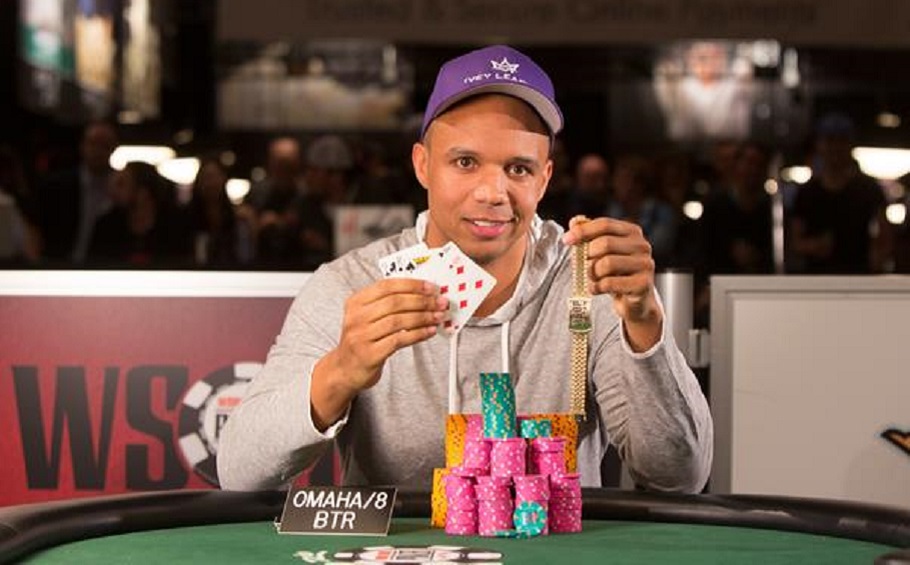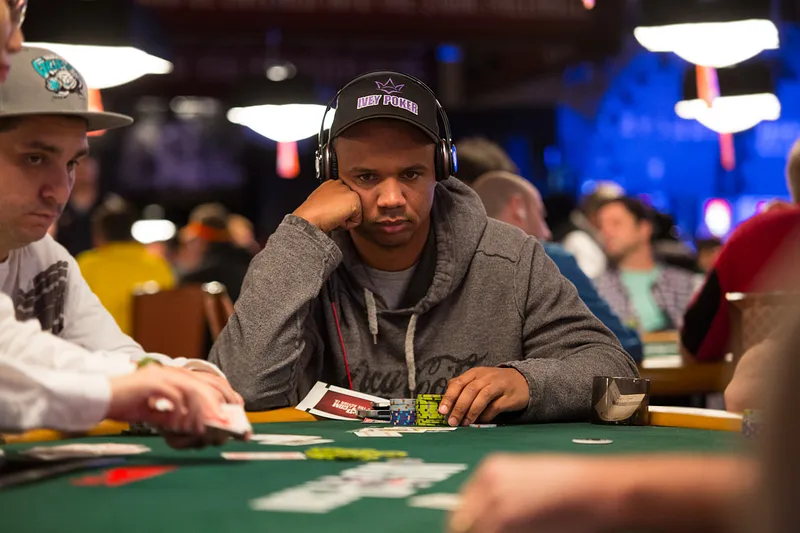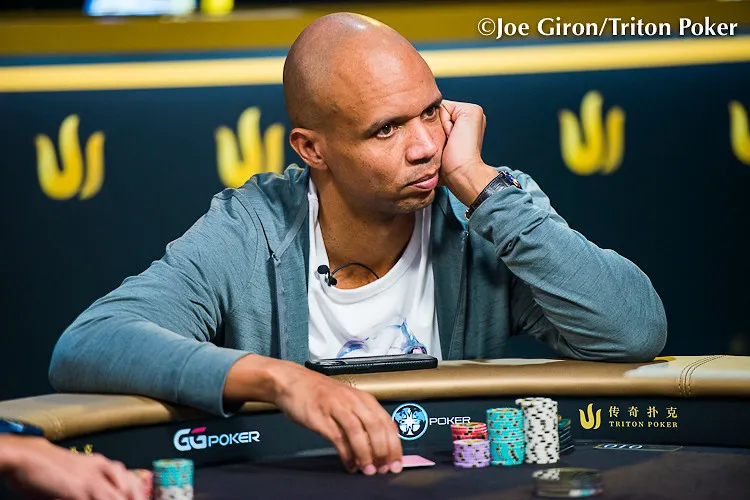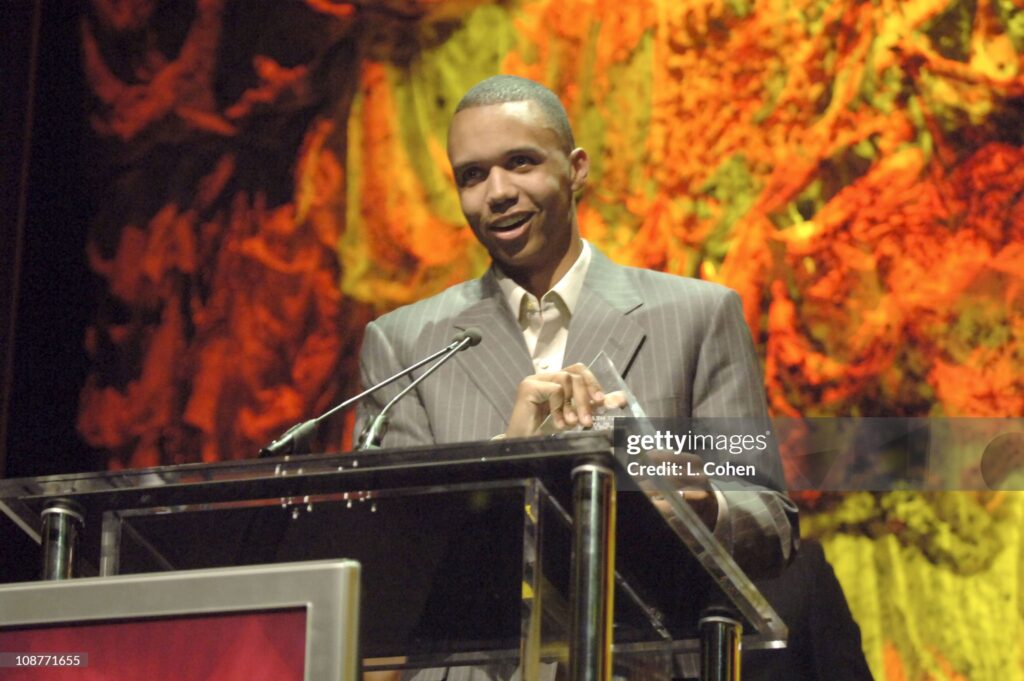
Phil Ivey, born in Riverside, California, in 1976, is a figure who embodies the quiet intensity of poker greatness. His journey started long before the spotlight found him. “I learned the game when I was a kid, and it became an obsession,” he reflects, recalling the countless hours spent honing his skills. His introduction to poker wasn’t just a casual hobby—it was something that consumed him, a challenge he felt compelled to conquer.
Atlantic City, where he played under the alias “No Home Jerome,” became his proving ground, where his talent for reading both cards and people began to emerge. “I wasn’t just playing cards,” he says. “I was studying people, learning how they moved, talked, and thought.” Every hand dealt wasn’t just an opportunity to win money—it was a puzzle to solve, a chance to outthink his opponents. His early years shaped his understanding of poker as a game not only of hands but of minds. It was never just about winning hands—it was about mastering the table.
Rising to Fame: First WSOP Victory
With this foundation, it wasn’t long before Phil’s dedication bore fruit. In 2000, the world witnessed his potential as he won his first WSOP bracelet at just 23 years old. This wasn’t just a victory—it was a declaration to the poker world that a new force had arrived.
“That was the moment I knew this is what I was meant to do,” Phil says. His unique blend of patience, precision, and fearlessness set him apart from the rest of the field. But his success wasn’t just about bold moves or luck—it was about deep strategy and an uncanny ability to stay one step ahead. “Poker isn’t about just the cards,” he explains. “It’s about reading people and staying in control.” Over the years, this approach paid off as he amassed titles, bracelets, and respect from peers and fans alike.
Challenges: The Edge-Sorting Controversy

However, as with any story of success, challenges emerged. In 2012, Phil found himself facing a legal controversy over edge-sorting, an advanced technique he used to gain an advantage in baccarat. While it was a calculated move on his part, it sparked a legal battle that put his integrity in the spotlight. “I did what I believed was within the rules,” he says, standing by his decisions, showing the same level of composure he has at the poker table.
The case brought a level of scrutiny he had never sought. “I’ve always preferred to let my game speak for itself,” Phil admits, emphasizing his desire to keep his personal life and public persona separate. Yet, for a man who had always let his actions do the talking, this sudden flood of attention from outside the poker world was disruptive. Still, the firestorm of media and public debate did little to shake his focus. Throughout the controversy, Phil’s love for the game never wavered—he kept his eyes on the cards, as always. In poker, as in life, you must stay calm through the storm.
A Lifelong Passion: Evolving with the Game

Even after decades of high-stakes triumphs and the occasional controversy, Phil’s relationship with poker has evolved but never waned. “I’m still learning, still evolving,” he says, a testament to his belief that poker, like life, is a constant process of refinement. What sets Phil apart isn’t just his winnings or titles—it’s his unshakable commitment to always improving.
Whether it’s diving into new strategies or playing against rising stars of the game, he continues to challenge himself at every turn. The tables may have changed—from Atlantic City to Macau, from underground games to world stages—but his passion remains undimmed. “Poker is a lifelong journey,” Phil reflects. “And I’m still on that path.”
A Legacy in the Making

His journey isn’t over, and despite all he has achieved, there’s a sense that the best may be yet to come. As he continues to play and inspire future generations of poker players, his legacy is not just in the bracelets he’s won but in the way he’s redefined the game itself—both as a mental contest and as an art form. At the table or in life, Phil Ivey plays to win, and his game is far from over.
Gutshot Magazine – Phil Ivey’s First WSOP Bracelet
A detailed look back at Phil Ivey’s first WSOP bracelet win in 2000 when he defeated Amarillo Slim in the $2,500 Pot-Limit Omaha event:Phil Ivey Defeats Slim to Win First-Ever Bracelet!(Gutshot Magazine)
PGT (PokerGO Tour) – Phil Ivey’s Career and Recent Results
For up-to-date tournament results and more details on Ivey’s career achievements:Phil Ivey on PokerGO Tour(PokerGO Tour)
